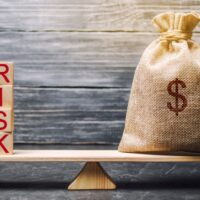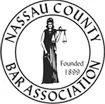What is Secured vs Unsecured Debt?

Debt comes in a variety of forms. Many consumers are unclear on the differences between “secured” and “unsecured” debts. Below, we explain how secured and unsecured debts operate and how they are each treated in Chapter 7 bankruptcy. Call a knowledgeable Poughkeepsie debt relief and bankruptcy lawyer to explore your options for debt relief.
Secured Loans
A secured loan is a loan that is attached to and protected by a piece of collateral. Often, the collateral is the item purchased using the loan proceeds. For example, a mortgage is a loan secured by a home, while auto loans are typically secured by the car purchased. Other items can be used to secure a loan, such as stocks or personal property. The lender will hold the deed or title of the asset (home, car, etc.) until the loan is fully paid down.
If the debtor defaults on a secured loan, meaning they have failed to pay their monthly premiums, the creditor can choose to sell the asset and use the proceeds to pay off the loan. If the loan is a mortgage, for example, the creditor can foreclose on the home, sell the house, and use the proceeds to pay off the mortgage. If the sale proceeds exceed the amount remaining on the loan, the creditor must give the excess funds back to the debtor. If the sale does not cover the remainder of the loan, the debtor might still be on the hook for the remainder, known as a deficiency.
Secured loans are the most common way banks and other lenders allow people and entities to borrow large amounts of money. Secured loans allow banks to loan larger amounts of money for longer periods of time with more favorable interest rates because they know that if all else fails, they can sell the collateral.
Unsecured Debts
An unsecured debt is a debt that is not secured by collateral. These loans are technically more risky than secured loans because the creditor cannot repossess an asset if the debtor fails to pay. Common types of unsecured debts include credit cards, student loans, medical debt, and personal loans. These types of debt often have higher interest rates than a secured debt like a mortgage, in order to offset the risk.
If the debtor defaults on an unsecured debt, the creditor cannot immediately take any of the debtor’s property, but they can use other collection tactics. They can hire professional debt collectors to hassle the debtor, they can seek legal remedies like wage garnishment, and they might even be able to obtain a lien on the debtor’s property. The creditor can also report a default to credit reporting agencies, damaging the debtor’s credit score.
Which Debt is Covered in Bankruptcy?
Secured and unsecured debts are treated differently in bankruptcy. Most unsecured debts will be covered and dischargeable in a Chapter 7 bankruptcy. Certain types of unsecured debts, including child support, student loans (with exceptions), and tax debt may not be discharged.
Secured debts can be included in a Chapter 7 bankruptcy, but only the debtor’s personal liability for the debt will be discharged. The debt will still be attached to the property used as collateral. That means that the creditor can still take the attached property once the bankruptcy concludes.
Part of the Chapter 7 process involves the debtor negotiating with creditors and telling the court how they wish to handle their secured debt. If the debtor wishes to keep the property, they may need to either reaffirm the debt, pay the creditor for the value of the property, or otherwise continue making payments. By getting rid of unsecured debts in Chapter 7, debtors are often able to afford their secured debt payments going forward and hang on to their valuable property without difficulty.
If you are struggling with debt in New York, contact the experienced and savvy Hudson Valley bankruptcy lawyers at the Law Office of Taran M. Provost, PLLC for a free consultation on your case at 845-675-3243.



